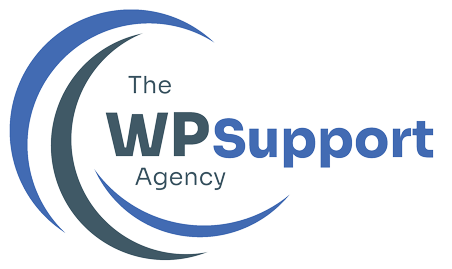Introduction
Running a business is hard enough – choosing a website platform shouldn’t be. If you’re asking, “Is WordPress right for my business website?”, you’re in the right place. In this guide, we’ll walk you through what WordPress offers, potential downsides, and what might serve your needs best – without jargon.
What is WordPress?
WordPress is a free, open-source Content Management System (CMS) used by millions of people to create websites. Originally launched in 2003, it has evolved into the most flexible platform for websites of all shapes and sizes—especially small businesses. It’s like a digital “factory” that lets you create and publish pages easily—ideal for non-techy business owners who want control without needing to code.
Why is WordPress The Most Widely Adopted CMS on the Web?
As of 2025, WordPress powers around 43% of all websites globally and holds a market share of over 61% among CMS-based websites. [Source]
This popularity is no accident. WordPress is:
- Reliable and well-tested
- Supported by a huge global community
- Constantly evolving with new features and security updates
- Future-proof—no lock-in or vendor shutdown risks
Top Benefits of WordPress for Business Owners
- Easy to use – Update pages, post blogs, or tweak layouts without needing a developer.
- Flexible – Add features via plugins: from contact forms to booking systems to full e-commerce.
- SEO friendly – Control over URLs, meta data, and performance—all important for Google rankings.
- Cost-effective – WordPress itself is free. Just pay for hosting and the optional extras you choose.
Things to Watch Out For with WordPress
- Maintenance is essential – Updates to WordPress, themes, and plugins keep your site secure and working smoothly.
- Hosting choice matters – A quality host can make or break your site’s speed and uptime.
- Plugin overload – Installing too many plugins can slow your site or cause conflicts. Keep things lean.
Comparing WordPress vs Other Builders
| Feature | WordPress | Proprietary Builders (e.g. Wix, Squarespace) |
|---|---|---|
| Setup | Requires hosting & setup | All-in-one, easy start |
| Customisation | Unlimited via plugins / themes / custom coding | Limited, boxed-in options |
| Maintenance | You manage performance, updates and security | Handled by provider |
| Cost | Hosting + optional plugins | Subscription + add-ons |
| Scalability | Excellent | Can be limiting and expensive long-term |
Real-World Costs and Hidden Pitfalls of WordPress
Short-term website builders may seem appealing, but their simplicity often comes at a long-term cost. Businesses regularly outgrow them or face rising monthly fees, limited functionality, or even sudden shutdowns. With WordPress, you own your content and infrastructure. That means greater control, lower risk, and fewer surprises.
Is WordPress Right for You? (Checklist)
✅ I’m comfortable with occasional updates or have help
✅ I want room to grow—blog, shop, new pages
✅ I prefer control over site design and SEO
✅ I want to avoid vendor lock-in or surprise migrations
FAQs
-
Do I need a developer to use WordPress?
No—basic updates and content changes are easy to handle yourself. There is a huge range of plugins available – many of them free – to provide additional features and functions without any programming. For advanced customisation, a developer can help.
-
How much does WordPress hosting cost?
If you are prepared to devote the time and handle the risks of managing everything yourself, cheap shared hosting from mass-market providers starts around £5–£10/month. Many mass-market providers offer ‘managed WordPress hosting’ with prices ranging anywhere from £20–£500/month depending on the specification. You have to look carefully at what is offered as the type of service offered varies and higher price does not always mean ‘better’.
Alternatively, specialised providers like The WP Support Agency offer more personalised services, tailored to supporting the specific needs of a small number of clients. Prices start at £35/month.
-
Is security a problem for WordPress sites?
In many ways, WordPress is a victim of its own success. Because it is so widely adopted, it is targeted by criminals and other bad actors. They particularly look for vulnerabilities in unhardened default WordPress installations and in the thousands of plugins available to users.
However, WordPress is generally secure when installed correctly on hardened infrastructure, maintained properly, and monitored. Keep it updated, use trusted plugins, and secure your hosting.
-
Is WordPress too complicated?
Not necessarily – but it can feel overwhelming at first. With the right setup and guidance, most business owners find it manageable. We’ll cover this subject in more detail in our upcoming article: Why WordPress Feels Complicated—and How to Make It Easier (coming soon).
-
Can I switch hosts, providers, and developers later if needed?
Yes! Because WordPress is so widely adopted and is a free platform, there is a vast ecosystem of hosting providers and developers skilled in supporting it. You can pretty easily move hosts. And it is straightforward to find developers and designers competent to work with your WordPress website.
You can even migrate to a different content management system or platform if your needs change. You own your data, and many export options are available – unlike with closed platforms.
Conclusion
WordPress is a smart, future-ready solution for business owners who want control, flexibility, and long-term value. With good hosting and the right support, it gives you everything you need to grow without being locked in. Ready to explore WordPress? Let’s chat about how we can help!

